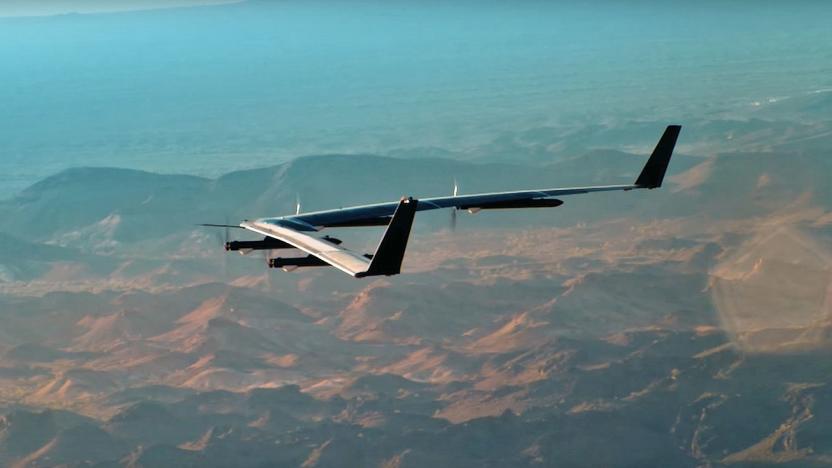internetdrone
Latest

Facebook pulls the plug on its Aquila internet drone
You'll want to say goodbye to dreams of Facebook-made internet drones. The company will stop designing and manufacturing its own aircraft, and is closing the relevant facility in the British town of Bridgwater. According to Facebook, it's not necessary when "leading companies" in aerospace have been designing their own high-altitude flying machines. Instead, the social network can focus on developing the high-altitude internet access systems and work with partners to both develop the connectivity itself and put it in the skies. This includes policies (such as a proposal for more spectrum at a 2019 conference) and rule-making committees.

Facebook's latest drone delivers internet during a disaster
Internet connectivity is kind of like air: something we take for granted until we can't get it. To help make communications easier during disaster scenarios, Facebook has come up with the "Tether-antenna." At its simplest, it's a small, unmanned helicopter that can hook onto undamaged fiber-and-power lines (when cellular connectivity has been damaged or is otherwise unavailable) and then hover "a few hundred feet from the ground," according to a Facebook Developers blog post. "When completed, this technology will be able to be deployed immediately and operate for months at a time to bring back connectivity in case of an emergency -- ensuring the local community can stay connected while the in0ground connectivity is under repair."

Facebook offers more details on its internet-beaming planes
We've known about Facebook's ambitious plans to bring internet to developing areas via drone for a while now. At the Social Good Summit this week, Facebook Connectivity Lab's Yael Maguire revealed more details about what the social network is hoping to accomplish. Speaking with Mashable CEO Pete Cashmore, Maguire said that the UAVs would need to be able to fly for months, or even years, at an altitude "above the weather, above all airspace." For those counting, that's around 60,000 to 90,000 feet. Luckily for Facebook and the Internet.org initiative, it has already looked into solar-powered options that can make trips lasting up to five years. Maguire went on to say that a regular-sized drone won't suffice, so the "planes" will have to be "roughly the size of a commercial aircraft, like a 747." As you might expect, the effort is certain to face regulatory hurdles, including how many of the vehicles a single pilot can oversee. Eventually, the goal is to have one person steering "up to 100" of the internet-carrying planes at a time. "We can't have one person per plane if we want to figure out how to connect the world," Maguire explained. For now, there's a three to five year window for employing the UAVs, and the lab hopes to see the first one take flight for testing next year.


